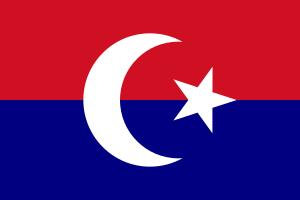Experts warn of new trends in Eurasia amid crisis

 PIONEER MEIZHENG BIO-TECH (5 in1) JC0586 - Antibiotic tests 5 in 1 / Rapid tests for determining the residual amount of β-lactams, tetracyclines and cephalexin in milk, whey
PIONEER MEIZHENG BIO-TECH (5 in1) JC0586 - Antibiotic tests 5 in 1 / Rapid tests for determining the residual amount of β-lactams, tetracyclines and cephalexin in milk, whey PIONEER MEIZHENG BIO-TECH (5 in1) JC1165 / Rapid tests for the determination of the residual amount of halofuginone, flavomycin, novobiocin, flunixin, dexamethasone / prednisolone in milk, whey
PIONEER MEIZHENG BIO-TECH (5 in1) JC1165 / Rapid tests for the determination of the residual amount of halofuginone, flavomycin, novobiocin, flunixin, dexamethasone / prednisolone in milk, whey
What is the crisis of Eurasia
The largest geopolitical crisis in relations between Russia and the West will inevitably affect regional processes in Eurasia. Experts expect the confrontation between the collective West and Russia to intensify, while China and other players will want to increase their presence in the region. These conclusions were reached by experts from the Russian International Affairs Council, the Institute of the Far East of the Russian Academy of Sciences and the Chinese Fudan University, who prepared the annual report "Russian-Chinese Dialogue" (published on June 9).
The start of the Russian special operation in Ukraine and the subsequent imposition of sanctions against Moscow significantly changed the possibilities and contours of cooperation in Eurasia, to which the authors include Tajikistan, Uzbekistan, Kyrgyzstan, Kazakhstan, Azerbaijan, Armenia, as well as Belarus and Georgia. For these countries, the new geopolitical environment brings both risks and opportunities. “Fearing secondary sanctions, the countries of the continent will balance between Eurasian integration and other partnerships. Sanctions against Moscowcan contribute to strengthening interaction within the Eurasian Economic Union on some tracks, but at the same time they limit the opportunities for developing economic cooperation,” the report says. The implementation of the Grand Eurasian Partnership and the Chinese Belt and Road Initiative will continue, and cooperation to link them can help mitigate the effects of external pressure. Politicians are also talking about this possibility - the ways of the appropriate development of integration were discussed at the end of May at the EAEU summit in Bishkek.
How the strategies of the largest players will change
Before the crisis, the largest players followed different strategies, experts say. China took a wait-and-see attitude, the United States gradually withdrew from the region, while Russia took active measures to strengthen its strategic position and leadership in the post-Soviet space.
By developing relations with the European Union, the countries of Eurasia tried to balance the influence of Russia and China , moreover, on a bilateral basis, which was also preferable for the latter. Moscow also sought to promote the idea of a dialogue between the EU and the EAEU, which, according to Russian experts, can be explained from a geopolitical point of view by a desire to balance China's influence in the region. For example, since 2010 the EU Investment Facility for Central Asia has been allocating funds to European Union projects on environment, energy and social infrastructure development in the region, and as an alternative to China’s Belt and Road Initiative (OBOR), the EU has created the Global Gates”, which aims to finance projects in the EU partner countries in the amount of up to €300 billion in 2021-2027.
The withdrawal of US troops from Afghanistan in August 2021 was perceived by many countries as Washington's withdrawal from South Asia. But now this withdrawal from the region will slow down and may reverse. Washington, the authors of the report are convinced, will put pressure on the countries of Central Asia to prevent the import of goods subject to anti-Russian sanctions through their territory. Although the United States will not have to work particularly actively: regional players are already aware of the risks, therefore, the report states, “one or two indicative cases of secondary sanctions will be enough.” US officials have repeatedly warned foreign banks against helping Russia overcome sanctions, and government officials in Kazakhstan and Armenia have indicated they have no intention of doing so for fear of secondary sanctions.
how the community can help and how to create it Instructions Pro Postponement? Not today:Minister of Economy of Armenia - RBC: "We are watching not to fall under sanctions" Politics
Instead of broad sanctions pressure, the US will resume ideological influence efforts, helping civil societies to reduce the influence of Russia and China, experts predict.
India, Pakistan and probably Turkey will also want to increase their presence in the region. India launched in January and plans to hold annual summits with the countries of Central Asia. India does not seem to be a competitor for Russia and China, especially in the field of “soft power”, however, friction is possible, for example, there is some competition between Russia, China and India in Central Asia in the field of “vaccine diplomacy” and medicine in general.
In January, Chinese President Xi Jinping met with the leaders of the Central Asian countries. It was announced that China plans to provide them with $500 million, 50 million doses of vaccine, 1,200 scholarships, and 5,000 educational quotas to improve skills in healthcare, information technology, and reduce poverty and improve the welfare of rural areas. As of 2019, China's trade with Central Asia exceeded India's by almost 30 times, and Russia's by about 22 times. At the same time, India pays great attention to political and security issues.
The strategies of Beijing and Moscow to develop regional connectivity in the new conditions may intensify without turning into a direct clash of interests, experts predict, noting that it cannot be ruled out that China will be more active, and Russia may be in a catching up position. In general, the interests of both countries in the region coincide - they are interested in security and economic development, however, Moscow and Beijing have some differences in their views on how these goals should be achieved.

























































